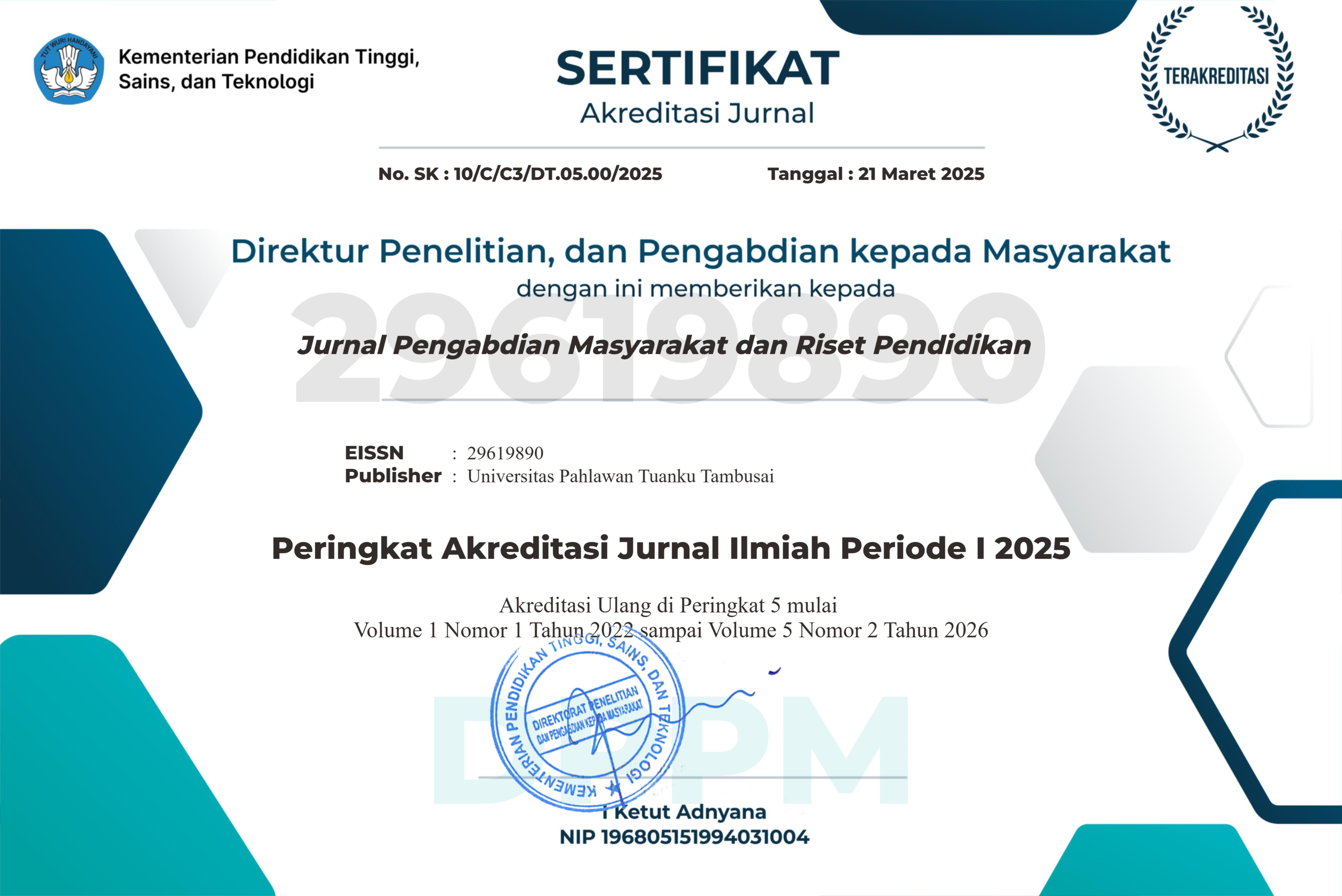Pengaruh Deadline dalam Memacu Semangat Mahasiswa untuk Memenuhi Tugas KKNI
Penelitian
DOI:
https://doi.org/10.31004/jerkin.v3i4.923Keywords:
Deadline, Motivation, Students, KKNI Tasks, ProcrastinationAbstract
This research aims to analyze the influence of deadlines on students' enthusiasm in completing tasks based on the Indonesian National Qualifications Framework (KKNI). This research used a quantitative method with a survey technique through questionnaires distributed to 101 students from various study programs. The research results showed that the majority of students (79.2%) agreed and strongly agreed that deadlines motivated them to complete tasks, and 74.2% felt more productive with deadlines. However, 57.4% of respondents also admitted to often procrastinating on tasks before approaching the deadline, and 41.6% felt that deadlines could cause stress. Data analysis showed that deadlines played a significant role as an external motivator for students in completing KKNI-based tasks, in line with Steel's theory of procrastination and Schraw, Wadkins, & Olafson's theory of learning motivation. Nevertheless, the tendency for procrastination and stress due to deadlines still needs
References
Adams, R. V. (2019). Impact of Time Management Behaviors on Undergraduate Engineering Students’ Performance. SAGE Open, 9(1), 1–11. https://doi.org/10.1177/2158244018824506
Fadila, M. E. (2022). Hubungan antara motivasi belajar dengan prokrastinasi akademik pada mahasiswa Fakultas Psikologi Universitas Islam Sultan Agung. Jurnal Psikologi, Universitas Islam Sultan Agung Semarang.
Kementerian Pendidikan dan Kebudayaan Republik Indonesia. (2018). Kerangka Kualifikasi Nasional Indonesia (KKNI). Jakarta: Kemendikbud.
Putri, N. A., & Indriyani, D. (2023). Pengaruh time management terhadap motivasi belajar mahasiswa Politeknik STIA LAN Jakarta. Jurnal Pendidikan dan Teknologi, 8(1), 45–54. https://edu.pubmedia.id/index.php/ptk/article/download/431/555/1509
Schraw, G., Wadkins, T., & Olafson, L. (2007). Doing the things we do: A grounded theory of academic procrastination. Journal of Educational Psychology, 99(1), 12–25. https://doi.org/10.1037/0022-0663.99.1.12
Steel, P. (2007). The nature of procrastination: A meta-analytic and theoretical review of quintessential self-regulatory failure. Psychological Bulletin, 133(1), 65–94. https://doi.org/10.1037/0033-2909.133.1.65
Wahyuni, A. D., Alpin, M., & Rahayu, D. A. (2022). Problematika mahasiswa terhadap tugas perkuliahan berbasis kurikulum KKNI di Prodi PAI FITK UIN Sumatera Utara. Risâlah: Jurnal Pendidikan dan Studi Islam, 8(1), 21–40. https://jurnal.faiunwir.ac.id/index.php/Jurnal_Risalah/article/download/194/168/1092
Schunk, D. H. (2012). Learning theories: An educational perspective (6th ed.). Pearson Education.
Tkinson, J. W., & Feather, N. T. (1966). A theory of achievement motivation. Wiley.
Downloads
Published
How to Cite
Issue
Section
License
Copyright (c) 2025 Akbar Fahlevi, Deni Theresya Sitohang, Karunia Lestari, Safira Aurelia Irawan, Roza Thohiri

This work is licensed under a Creative Commons Attribution-ShareAlike 4.0 International License.















